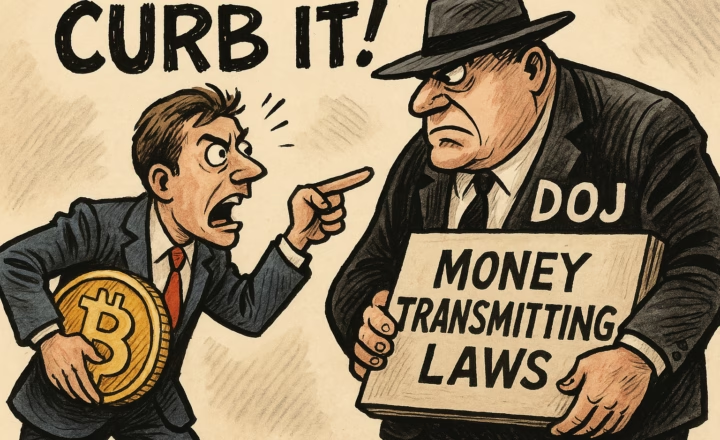Major asset manager moves beyond Bitcoin and Ethereum, targeting Solana as the next institutional-grade digital asset
Fidelity Investments, one of the largest asset managers in the world, has filed an application with the U.S. Securities and Exchange Commission (SEC) to list a spot Solana (SOL) exchange-traded fund (ETF). This move marks a significant expansion of Fidelity’s digital asset product line, which already includes Bitcoin and Ethereum ETFs, and reflects growing institutional interest in Layer 1 blockchain networks beyond the dominant players.
NEW: @EricBalchunas and I took a look at the filings for spot crypto ETFs. We’re putting out relatively high odds of approval across the board. Mainly focused on Litecoin, Solana, XRP, and Dogecoin for now.
Here’s the table with the odds and some other details: pic.twitter.com/xaXaNXLb0M
— James Seyffart (@JSeyff) February 10, 2025
The filing was submitted by the Cboe BZX Exchange on March 25, 2025, under the official rule change proposal format known as a 19b-4. If approved, this would be the first U.S.-based spot Solana ETF, allowing investors to gain direct exposure to SOL without holding the underlying tokens.
The ETF Filing in Context
Fidelity’s application comes at a time of increased momentum for Solana. The network has gained attention for its high throughput, low transaction costs, and thriving developer ecosystem. These attributes have made it a favored platform for decentralized applications (dApps), NFTs, and DeFi protocols.
Key highlights of the proposed ETF:
-
Name: Fidelity Solana Trust (tentative)
-
Type: Spot ETF (not futures-based)
-
Exchange: Cboe BZX Exchange
-
Custodian (expected): Fidelity Digital Assets or an SEC-compliant third party
-
Underlying asset: Solana (SOL), with daily valuation based on a reference rate from reputable exchanges
Unlike futures-based ETFs that track the performance of derivatives contracts, a spot ETF directly holds the underlying asset—in this case, SOL—offering investors a more precise and cost-effective exposure to price movements.
Why Solana?
Solana has steadily climbed the ranks of crypto market capitalization, currently sitting within the top six digital assets with a market cap of approximately $74 billion. It is often touted as a faster and more scalable alternative to Ethereum, processing thousands of transactions per second with minimal fees.
Fidelity’s move to file for a spot Solana ETF suggests the firm sees strong fundamentals and future demand from both retail and institutional investors. Several factors support this thesis:
-
Rapid ecosystem growth: Solana has attracted significant developer and investor activity, with active wallets and transaction volumes rising steadily.
-
Layer 1 competition: As Ethereum continues to battle congestion and high gas fees, Solana presents a compelling alternative for Web3 applications.
-
Regulatory resilience: While the SEC has targeted several tokens under securities laws, Solana has yet to face direct litigation—though it remains on the radar.
Broader Industry Implications
The filing follows a trend of asset managers expanding their crypto offerings. Earlier in 2025, companies such as VanEck, Franklin Templeton, and Grayscale announced similar intentions to offer Solana-based investment products. The success of spot Bitcoin ETFs, which now manage over $50 billion in assets, has emboldened firms to pursue ETFs for other top-tier cryptocurrencies.
This diversification represents a broader institutional shift:
-
Beyond Bitcoin and Ethereum: Investors are seeking exposure to the next generation of blockchain infrastructure.
-
Regulatory confidence: Asset managers are increasingly willing to navigate SEC scrutiny to bring these products to market.
-
Investor demand: Retail and institutional clients alike are looking for efficient, regulated access to emerging assets.
If approved, the Solana ETF would also mark a significant step toward equal treatment of digital assets under U.S. securities law, challenging the narrative that only Bitcoin and Ethereum can be packaged into SEC-approved investment vehicles.
Regulatory Landscape and Challenges
The ETF’s approval remains uncertain. The SEC has historically resisted spot crypto ETFs, citing market manipulation concerns and lack of surveillance-sharing agreements. However, recent court decisions and the approval of spot Bitcoin ETFs have shifted the regulatory landscape.
Key considerations for the Solana ETF:
-
Market maturity: The SEC will assess whether Solana’s trading markets are sufficiently robust and transparent.
-
Custodial compliance: Fidelity must demonstrate secure, insured storage of SOL through qualified custodians.
-
Surveillance agreements: The Cboe may need to establish partnerships with major exchanges to address manipulation concerns.
Should the SEC approve the filing, it would signal a more progressive stance on altcoin ETFs and open the door to further product diversification across the crypto sector.
Market Reaction and Investor Sentiment
Following the announcement, Solana’s price experienced a modest upward movement, reflecting investor optimism around institutional adoption. Market analysts view Fidelity’s filing as a credibility boost for the Solana ecosystem and a possible catalyst for renewed interest among hedge funds, family offices, and other professional investors.
From an equity market perspective, firms like Coinbase and Galaxy Digital—both of which have exposure to Solana—could see indirect benefits. Additionally, if Solana gains ETF approval, other altcoins like Avalanche (AVAX), Polkadot (DOT), or Cosmos (ATOM) may be next in line for similar treatment.
What It Means for Investors
For crypto investors, the proposed Solana ETF offers:
-
Regulated access to SOL through traditional brokerage accounts
-
Tax efficiency and simplified custody compared to holding tokens directly
-
Liquidity and transparency via exchange-traded pricing
For institutional investors, the ETF provides a vehicle to gain exposure to a high-growth Layer 1 protocol without the need to manage private keys or navigate unregulated exchanges.
However, investors should remain mindful of:
-
Approval uncertainty: SEC decisions can be delayed or denied.
-
Price volatility: SOL remains a highly volatile asset.
-
Smart contract risks: Solana’s technology, while innovative, has experienced outages and exploits in the past.
Final Thoughts
Fidelity’s move to file for a spot Solana ETF underscores the growing maturity of crypto markets and the expanding appetite for alternative blockchain investments. While regulatory hurdles remain, the application itself signals that Solana has entered the conversation as an institutionally relevant asset.
As regulatory clarity evolves, and demand for diversified crypto exposure grows, the approval of a Solana ETF—if granted—could mark a pivotal moment in the next phase of digital asset adoption.












